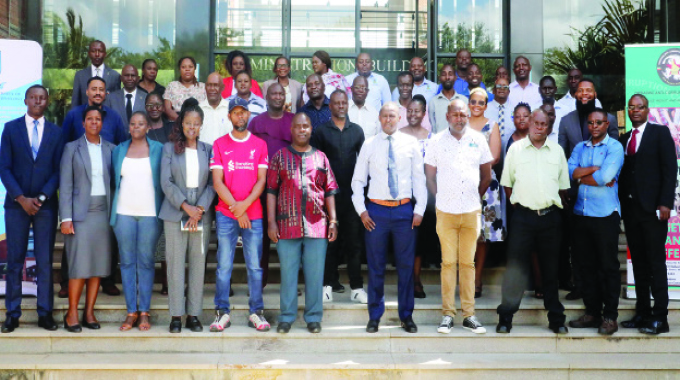WATCH: ‘Corruption compromises quality of Zimbabwe’s education’

Nqobile Tshili, [email protected]
THE widespread incidents of sextortion and academic fraud at the country’s higher and tertiary learning institutions is a serious threat to the integrity of the country’s degrees and diploma qualifications, the Zimbabwe Anti-Corruption Commission (ZACC) has said.
The anti-corruption body yesterday held an integrity committee engagement meeting with staffers from the National University of Science and Technology (Nust), Lupane State University, Great Zimbabwe University and Gwanda State University, as part of the measures to weed out corrupt tendencies at tertiary institutions.
The meeting was meant to capacitate higher and tertiary learning institutions on measures they need to undertake to curb corruption within universities.
In an interview, ZACC commissioner Jessie Majome said higher and tertiary institutions are not immune from corruption with academic fraud being among the most prevalent crimes in the country.
“There are a lot of issues that are pervading our society. I think we keep seeing these advertisements in broad daylight of people who offer to write dissertations and assignments for people.
“This shows that something has gone horribly wrong in how our society values and understands the value of applying oneself academically,” said Commissioner Majome.
The Chronicle has previously exposed a network of individuals writing academic papers who charge up to US$1 000 just to complete assignments and dissertations for individuals.
The peddlers have occupied online platforms while at the same time they also post their small advertising billboards on the streets and on strategic buildings.
Comm Majome also said sextortion was being recorded in the country’s universities with females being the most affected.
“It (academic corruption) can also be from a gendered perspective. It can manifest itself from what is called sextortion and sexual harassment at the staff levels and also particularly for female students,” she said.
“I’m not saying male students are not at risk but in the way in which our society operates, there is a worrying trend where this is more prevalent in young women. Our bright intelligent young women sometimes end up being exposed to or being compelled to or setting themselves up and trading their sexuality for the passes yet they could competently qualify,” said Comm Majome.
She said forgery, and plagiarism are also among the intellectual property thefts that can also compromise the quality of the country’s education.
Comm Majome said by uprooting some of the malpractices the country can safeguard the quality of the country’s degrees internally and internationally. She said in some instances corruption is prevalent in the enrolment of students to universities.
“We are excited that the ingraining of the integrity committees will help universities by themselves to keep a watch out of issues that undermine their stature and value and resonate with the qualification that they ultimately get,” she said.
“We don’t want the Zimbabwean academic qualification to be a laughing stock in the world. We want it to continue to be a sought after qualification locally and internationally. We want Zimbabweans to continue to stand head and shoulders with everyone in the world. So integrity is the way to go.”
During the meeting, the Commission hinted that issues of concern are raised especially in the management of human resources at the higher and tertiary institutions including nepotism and favouritism as far as recruitment is concerned. Comm Majome said even in the administration of the universities, corruption can be detected.
“The other issues are in the administrative realm whereby academic institutions also operate in the economy regarding issues around procurement of supplies, issuance of contracts and there are a lot of chances of corruption if officials do not subscribe to integrity committees as one being established at Nust, Lupane State University, Gwanda State University and others that should be here,” said Comm Majome.
She said the integrity training workshop that the anti-graft body is undertaking is meant to ensure that there is sanity in the running of higher and tertiary institutions.
Apart from the mentioned universities, the Zimbabwe Open University is among the higher and tertiary education institutions to have joined the integrity committees.
Comm Majome said Nust, among other universities, took the initiative to invite ZACC to train them on integrity committees.
She said eradicating corruption is one of the cornerstones of achieving President Mnangagwa’s Vision 2030 and universities cannot be left behind.
“Corruption could be an impediment to achieving an upper middle income economy. So, if we replace corruption with integrity we definitely enhance our chances of achieving Vision 2030,” she said.
“We need to act with integrity wherever we are and steward our national and financial resources. In doing so we will definitely get there,” said Comm Majome. — @nqotshili









Comments